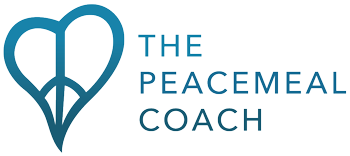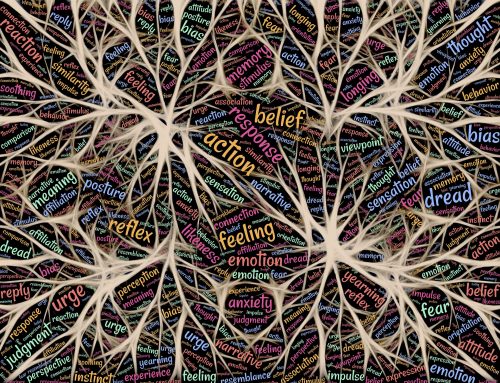Only when he no longer knows what he is doing does a painter do good things.
-Edward Degas
Parents of kids who have been diagnosed with anorexia are not strangers to uncertainty. Because anorexia treatment and recovery comes with so much uncertainty, it helps to know how to manage it. I’m sharing 6 steps to manage anorexia uncertainty to help other parents of anorexic teens.
My Uncertainty
I’m comfortable with a certain level of uncertainty. After all, not much is absolutely certain. But most of the time the relative certainty of things allows me to make decisions with some degree of confidence.
It’s one thing to face uncertainty when it comes to my own life, but when it is my child’s life that is uncertain, that is an entirely different matter. So when my teen was diagnosed with anorexia, I found myself swimming in a level of uncertainty that was terrifying. Treatment options were filled with uncertainty. I had uncertainty about recovery. Figuring out how to help my daughter filled me with uncertainty. Worst of all, I was uncertain about my ability to handle all of the uncertainty.
Uncertainty Defined
The Merriam Webster Dictionary defines uncertainty as a lack of sureness about someone or something. Uncertainty can range from being mildly unsure to an almost complete lack of belief or knowledge, especially about a result or an outcome. But, uncertainty itself isn’t a problem. Uncertainty isn’t positive or negative until we decide what to think about it.
Chances are when you’re a parent faced with uncertainty surrounding your teen’s anorexia, you don’t automatically view the uncertainty you feel as positive. That’s why taking a look at what you are making the uncertainty about treatment, recovery, your teen, and yourself mean is worthwhile.
A New Definition of Uncertainty
Years ago, I came across something that Deepak Chopra wrote that really resonated with me. He was discussing uncertainty. Instead of viewing uncertainty in a negative way and attempting to avoid it, he suggested seeing uncertainty as unlimited potential and opening up to it.
How do we define potential?
I found multiple dictionary definitions of potential as a noun: something that can develop or become actual; the possibility of something happening or someone doing something in the future; unrealized qualities or abilities that can be developed and may lead to future success or usefulness.
The meaning of unlimited is easy to comprehend. Unlimited is not restricted. Unlimited is boundless; infinite; having no limits in terms of extent.
Putting unlimited and potential together to form unlimited potential creates the meaning I think Chopra was trying to convey. Unlimited potential defined is infinite possibility. Unlimited potential means boundless opportunity.
I find this new definition of uncertainty especially useful as it applies to anorexia treatment and recovery. If uncertainty is unlimited potential, then uncertainty is a gift. Rather than experiencing uncertainty as fear, we have the choice to experience uncertainty as something that is much more useful to us and to our teen.
Uncertainty and Anorexia
It’s human nature to want definitive answers when your child is diagnosed with anorexia.
- Why did this happen?
- What is the best treatment?
- How can I help my child?
- How long until he recovers?
- Will she be okay?
When no clear answers are available, parents are left with a lot of uncertainty. Because there are no certain paths to anorexia recovery and treatment, I encourage parents of anorexic teens to change the way they are thinking about that uncertainty. It can help parents of anorexic teens to see the uncertainty as opportunity, as unlimited potential. It is so much more useful to see the unlimited potential in anorexia recovery and treatment than to indulge in confusion and despair.
There is no requirement of certainty for most things in life. If we had to be certain before we made each and every decision, we would be stuck. Decisions are made whether we are certain or not, and that is how we figure out what to do. If uncertainty is causing you to fear making decisions, making you doubt your daily choices, and preventing you from moving forward, then it may be time to start thinking about uncertainty in a new way. It sounds like a simple shift. But simple things aren’t always easy.
Your Current Beliefs
You can change the way you see the uncertainty of your teen’s treatment and recovery. Start by asking and answering some questions to get to your current beliefs about the uncertainty that anorexia has brought up for you.
- What do you think about the treatments that are available?
- What do you think about the recovery rates that are associated with those treatments?
- How do those thoughts make you feel?
- How do you want to feel?
If you find the uncertainty surrounding anorexia treatment and recovery is causing you confusion, fear, or anxiety, ask yourself a couple of questions:
- Can you look at the uncertainty as potential in disguise?
- Can you believe that within uncertainty there are solutions waiting to be discovered?
How To Manage Anorexia Uncertainty
1. Watch for fear.
When your primitive brain automatically defaults to fear, allow yourself to observe the feeling without getting caught up in it. By simply being aware that your brain is doing what it is designed to do, you can compassionately observe the fear and recognize it is not necessary for you to act on it. This awareness is important to learning to manage anorexia uncertainty.
2. Choose to use your logical brain.
It is hard to manage anorexia uncertainty when your brain is on default. The good news is you can use your logical brain to overcome your automatic programming. Once you are aware that your primitive brain is very efficient at subconsciously freaking you out, you can consciously choose to use the logical part of your brain to deliberately choose what to think and feel. The prefrontal cortex of the brain can override your primitive brain’s fear so that you can shift your attention to more useful thoughts.
3. Acknowledge what you know.
Uncertainty can convince us to be confused. Because we don’t know exactly how to get from point A to point B, it is easy to forget how much we actually do know. For example, you know that food is her medicine, so getting her to eat is a priority. You also know your teen and what works and doesn’t work for her. Remember that you have more certainty than your brain leads you to believe.
4. Focus on actions instead of problems.
Keep in mind that there is no perfect or right way to recovery. There is no perfect or right way to parent. Even in the midst of uncertainty, you can decide to concentrate on what you can do to move forward. Put effort into taking the next step instead of allowing uncertainty to stop your progress.
5. Recognize that you have control.
Uncertainty can trick us into believing that everything is out of our control. Practice deliberately stepping into the power that you have. You absolutely control how you choose to think, feel, and behave under all circumstances.
6. Trust yourself.
When those around you see uncertainty as a reason to be fearful about your teen’s anorexia treatment and recovery, you can choose to see it differently. Just because family members, treatment professionals, and friends have strong ideas and opinions, you don’t have to allow their judgments to interfere. Tune into your instincts as you care for your anorexic teen and notice when your thoughts are those of others instead of your own. You get to choose how you want to feel and what you want to do, every step of the way.
What I love about uncertainty is that there is room for me to decide what I want to believe. I choose to see the uncertainty surrounding anorexia as positive because it means that anything is possible. It is amazing how powerful a shift in thinking can be. The ability to manage uncertainty in a way that is useful is an invaluable skill for parents of anorexic teens.
If you’d like to learn how my Peacemeal Program can help you navigate uncertainty about your anorexic teen’s recovery, contact me at jenni@peacemealcoach.com.






